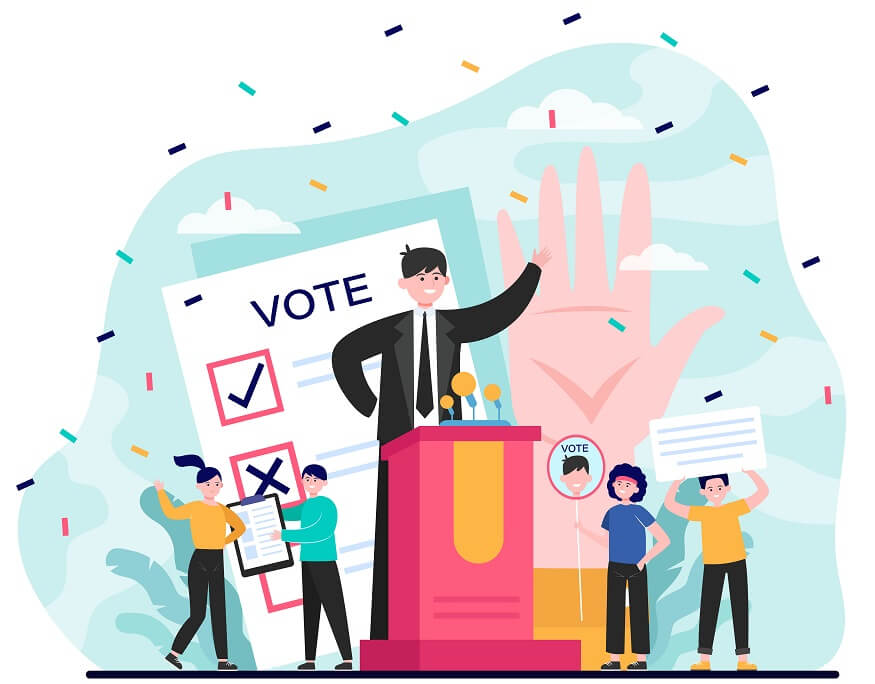Elected as Members of the Legislative Assembly (MLAs), these individuals hold a central and multifaceted position within the complex framework of shaping state policies throughout India. Their selection by the citizenry designates them as the primary intermediaries connecting the general public with the government, actively participating in a multifaceted decision-making process. Understanding the intricate and multifaceted roles that local, state, and community leaders (MLAs) play in policy formation, passionate advocacy, and rigorous implementation, this story illustrates how essential it is for members of the legislative assembly to advocate for and represent the diverse interests and needs of their communities Unwavering dedication is what this obligation is all about.
Also read : How to choose the right ICSE school in Mumbai for 11th and 12th
Unraveling the Nuanced and Diverse Role of an MLA
- Meticulous Representation of the People:
- Legislative Functionality:
MLAs don the mantle of policy architects, actively participating in the intricate web of policy formulation. They conscientiously present the multifaceted perspectives of their constituents during exhaustive discussions and impassioned debates. Working fluidly with a wide range of stakeholders, including government officials, subject matter experts, and civil society organizations, they meticulously create policies that address the varied and frequently complex difficulties faced by the state.
The legislative role of MLA transcends mere symbolism; it is an integral and dynamic aspect of the democratic process. They are entrusted not merely with proposing but with subjecting laws to rigorous debate and judiciously endorsing them. Every area of life is governed by state law as a whole, from the most fundamental services like health and education to the intricate realm of infrastructure and tax rules.
Also Read : How to choose right CBSE school in Thane for 11th and 12th
The Multiple Effects of the MLA on State Policy
- Architects of Policy Formulation:
- Champions of Policy Advocacy:
- Astute Budget Allocation:
- Stalwarts of Oversight and Accountability:
- Engines of Constituency Development:
- Dynamic Public Engagement:
- Pioneers of Policy Amendments and Reforms:
- Crucial Participation in Committees:
MLAs don the mantle of policy architects, actively participating in the intricate web of policy formulation. They conscientiously present the multifaceted perspectives of their constituents during exhaustive discussions and impassioned debates. Working fluidly with a wide range of stakeholders, including government officials, subject matter experts, and civil society organizations, they meticulously create policies that address the varied and frequently complex difficulties faced by the state.
Members of the legislative assembly emerge not as passive observers but as passionate and persuasive champions for policies that seamlessly align with the myriad interests of their constituents.
To sway their legislative colleagues’ votes and ensure that laws beneficial to the state and its citizens are swiftly passed, they employ their persuasive and influencing skills.
One of the pivotal avenues through which Members of the legislative assembly profoundly impact state policies is through their judicious allocation of the state budget. Diligently scrutinizing and sagaciously endorsing the budget, they meticulously ensure that fiscal resources are equitably and judiciously allocated to projects and initiatives that harmoniously align with the variegated needs and priorities of their constituents. Infrastructure, healthcare, and education are all thoroughly covered in this analysis.
MLAs, ever vigilant and unwavering in their commitment, exercise their oversight responsibilities with consummate diligence. They scrupulously monitor the progress of diverse projects, painstakingly review voluminous reports, and incisively question government officials during spirited and often rigorous assembly sessions. Programmes can be conducted with total integrity and produce tangible advantages for the public thanks to this tight oversight, as opposed to just being the subject of meaningless platitudes.
MLAs are not content with a cursory role; they roll up their sleeves and immerse themselves in the intricate tapestry of constituency development. MLAs spend a tremendous amount of effort to raise money for crucial community projects including roads, sanitary facilities, schools and clinics. The improved quality of life for their people is a direct result of this concentrated effort.
MLAs engage with the public through a multitude of avenues, including but not limited to regular interactions, public meetings, and meticulously organized feedback sessions. They ardently collect input from their constituents on a kaleidoscope of issues and judiciously employ this invaluable feedback to modulate and refine their stance on policies.
MLAs are not passive recipients of policy decisions; they are dynamic agents of change. When they discern policy shortcomings or identify areas ripe for reforms, they boldly step forward to initiate policy amendments and reforms. Engaging wholeheartedly with their fellow MLAs in constructive discourse, they endeavor collectively to effect positive changes that resonate with the interests and aspirations of the populace.
Many MLAs shoulder pivotal roles in various legislative committees, ranging from finance and health to education committees. Making educated decisions is greatly aided by the advice from these groups.
Also Read: Which country started the Civil Rights Act in 1964?
Challenges Faced by MLAs
- Constituency Diversity:
- Finite Fiscal Resources Management:
- Inherent Political Pressures:
The constituencies that MLAs represent are often microcosms of diversity, teeming with multifarious needs and, at times, conflicting interests. Balancing these myriad interests and astutely prioritizing policies that accrue benefits to all constituents is a Herculean and often intricate task.
While state budgets indeed constitute substantial financial resources, it is vital to acknowledge their inherent limitations. MLAs bear the onerous responsibility of skillfully navigating within these confines of finite fiscal resources to address the pressing concerns and urgent needs of their constituencies effectively and with prudence.
MLAs, as political representatives, may occasionally confront the arduous challenge of reconciling their party’s overarching agenda with the immediate interests and needs of their constituents. Complex and contradictory conclusions can occasionally result from this delicate balancing act.
Conclusion
The future of state politics and governance will be greatly and significantly influenced by members of the Legislative Assembly, or MLAs. In addition to actively participating in the convoluted legislative process, expertly promoting policies, methodically observing governmental activities, and zealously communicating with their constituents, their tasks also involve expressing the many opinions and varying objectives of their constituency.
Their position as elected representatives from the cornerstone upon which the foundation of democracy firmly rests. This crucial function makes sure that governments accountability to the populace is unwavering and that policies are painstakingly created to actually serve their welfare. As participants in the democratic process, it becomes our collective duty to remain well-informed regarding the conscientious efforts of our MLAs and to engage with them actively. This proactive engagement ensures that our concerns are not merely acknowledged but genuinely attended to with utmost sincerity. Through this relationship, state policy creation, improvement, and implementation are ensured.
The thorough training programme offered by EuroSchool digs closely into the crucial part that MLA plays in determining how state policies are formulated. At EuroSchool, kids like you join exciting classes and fun discussions to learn all about how our leaders make important rules for our state. Thus the above emphasizes on the importance of exercising sound judgment, having a support system, and monitoring changes carefully. Students of EuroSchool are equipped with the core skills and information necessary to successfully navigate the complicated world of politics and policymaking. Making sure people are aware of their objectives and the people they are working to serve is fundamental to EuroSchool. It showcases now how important it is for local and regional governments to uphold democracy and help the residents.











